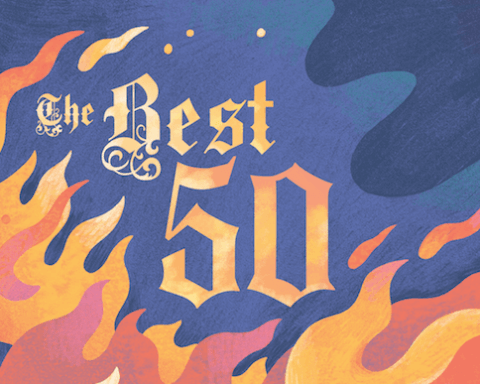When the pandemic lockdown began, some of Canada’s most civic-minded companies looked past the chaos and confusion to do what they could to help.
Vancouver’s community-minded credit union Vancity leapt into action, reducing credit card interest rates to zero, buying back foreign currencies from customers who’d had travel plans cancelled, at the same rates as they had been sold, offering small businesses emergency zero-interest working capital, and waiving ATM and Interac e-transfer fees. In addition to a $1 million Community Response Fund to support Vancouver groups fighting the pandemic, it also set up a Unity Term Deposit, which raised an impressive $200 million in just one month – money that’s being used to fund programs that will directly support those affected by COVID-19.
A number of Canadian businesses scrambled, innovated and retooled to solve medical supply shortages and pandemic-related breakdowns in global supply chains. Ontario Power Generation dug through its inventory and found more than one million surgical masks, 75,000 N95 masks and 17,500 protective suits that it shipped to Ontario’s Ministry of Health in March. The company also donated $900,000 to emergency food support.
Transportation equipment giant Bombardier used its manufacturing muscle to combat the shortage of medical supplies by retooling its Thunder Bay, Ontario, railcar plant to produce crucial parts for 18,000 ventilators for delivery to the Ontario government. Similarly, Bombardier’s engineering site in Saint-Bruno, Quebec, pivoted to produce 40,000 visors for healthcare workers who are most at risk in the pandemic.
Sustainable packaging producer Cascades started manufacturing a million pre-cut recycled plastic medical visors for Bauer, a sports-equipment manufacturer turned PPE producer.
Not coincidentally, all these companies are on our 2020 list of Canada’s Best 50 Corporate Citizens. These homegrown heroes are not only leading the charge against the coronavirus, they are strategically adopting more sustainable business practices that demonstrate their commitment to a healthier world.
The journey to more sustainable lifestyles is a long one, and progress is measured in years. But calamities such as COVID tend to strip away the rhetoric to expose individuals and organizations for who they truly are. In these tough times, Corporate Knights is pleased to see that the companies we consider role models in the shift to sustainable civil society have also proved to be generous leaders in a time of crisis.
It’s all connected. Companies that embrace environmental measures, diversity and responsible risk management aren’t just better prepared for the climate crisis and public emergencies; they are actively strengthening themselves in a fast-moving economy that increasingly rewards speed, resilience, empathy and innovation. Good citizenship isn’t a constraint – it’s an opportunity.
The 2020 Best 50 ranking includes well-known consumer staples, such as our No. 1 company this year, Mountain Equipment Co-op (MEC), as well as High Liner Foods and Canadian Tire, and industrial giants such as Cascades, Agnico Eagle Mines and RioCan Real Estate Investment Trust. As in previous years, the list is peppered with financial institutions (10) and utilities (13), which is great news for the future: utilities are key partners in reducing greenhouse gases and embracing new technologies, while we need clear-sighted banks, credit unions and pension-fund managers to fund the cleantech revolution.
We’re also pleased to see a wide spectrum of industries represented, including cleantech (Canadian Solar, Secure Energy Services), natural foods (SunOpta), media (Transcontinental), telecom (Telus, Cogeco), airlines (Transat A.T.) and mining (Teck, Agnico Eagle). It’s a reminder that any company, in any industry, can choose to do the right things.
Corporate Knights ranks the Best 50 Corporate Citizens on 21 key performance indicators. We scrutinize their percentage of clean revenue, board and executive gender diversity, GHG and waste productivity, employee turnover, innovation efforts, and even the amount of taxes they pay, along with a dozen other factors.
By recognizing genuine advancements on the road to cleaner capitalism, the Best 50 reinforces good behaviours, sets higher standards and seeds hope. To those who think that all corporations are venal, that climate change can’t be stopped, these 50 leaders demonstrate that, as Telus (No. 20) likes to say, “The future is friendly.”
When COVID struck, Vancouver-based Telus lived up to its branding as “Canada’s Most Giving Company.” In addition to waiving some service charges and offering its clients more flexible payment options during lockdown, Telus has invested some $150 million to support COVID relief. Among its initiatives, it’s offering free phone service to frontline healthcare workers; donating more than 10,000 devices, tablets and prepaid SIM cards to help isolated seniors, hospitalized patients and vulnerable Canadians stay connected; and supporting communities with $10 million in medical technology and equipment.
While mining giant Teck Resources took some heat for keeping its B.C. mines open during the COVID emergency, it used its supplier network to procure a million N95 masks to donate to B.C. healthcare workers. And that’s just a part of the $20 million COVID-19 Response Fund Teck launched to aid medical research; support local healthcare and social services in Canada, Alaska and Chile; and fund international relief efforts.
Customer relief has also been on companies’ minds. In April, when many businesses were struggling to pay the monthly rent, retail property trust RioCan offered independent commercial tenants a 60-day, interest-free rent deferral, repayable within a year. RioCan said it’s committed to its clients and to “finding solutions on a case-by-case basis to support their businesses.”
In Alberta, EPCOR Utilities, an Edmonton-based provider of municipal water systems, offered to defer customers’ bill payments for 90 days. It also donated $300,000 to the United Way and the Edmonton Community Foundation, a contribution that was then matched by the Alberta government.
Best 50 company donations poured into Canada’s food banks and charities across the country, with companies such as Canadian Pacific, Canadian Tire, Sun Life, Brookfield Asset Management and others donating millions to emergency COVID relief.
The financial institutions that comprise so much of the Best 50 list have also stepped up. In addition to the Vancity efforts already cited, Bank of Montreal, Desjardins, RBC and HSBC Bank Canada and others raced to offer financial relief for hard-hit personal and business clients, including many deferrals on payments of loans, credit cards and lines of credit.
As well, the banks undertook new COVID-related philanthropic activities. For instance, BMO donated $1 million to the United Way to support newly exposed gaps in community services. RBC committed $2 million to support local response efforts, including food banks, as well as the World Health Organization’s COVID-19 Solidarity Response Fund. TD Bank committed $25 million to the TD Community Resilience Initiative, a “strategic philanthropy” initiative to support communities and organizations across North America responding to COVID-19 and supporting community recovery.
Sudden crises can reveal deep fractures in society. But they can also inspire innovative, big-hearted behaviours that recognize our mutual dependence and shared humanity.







